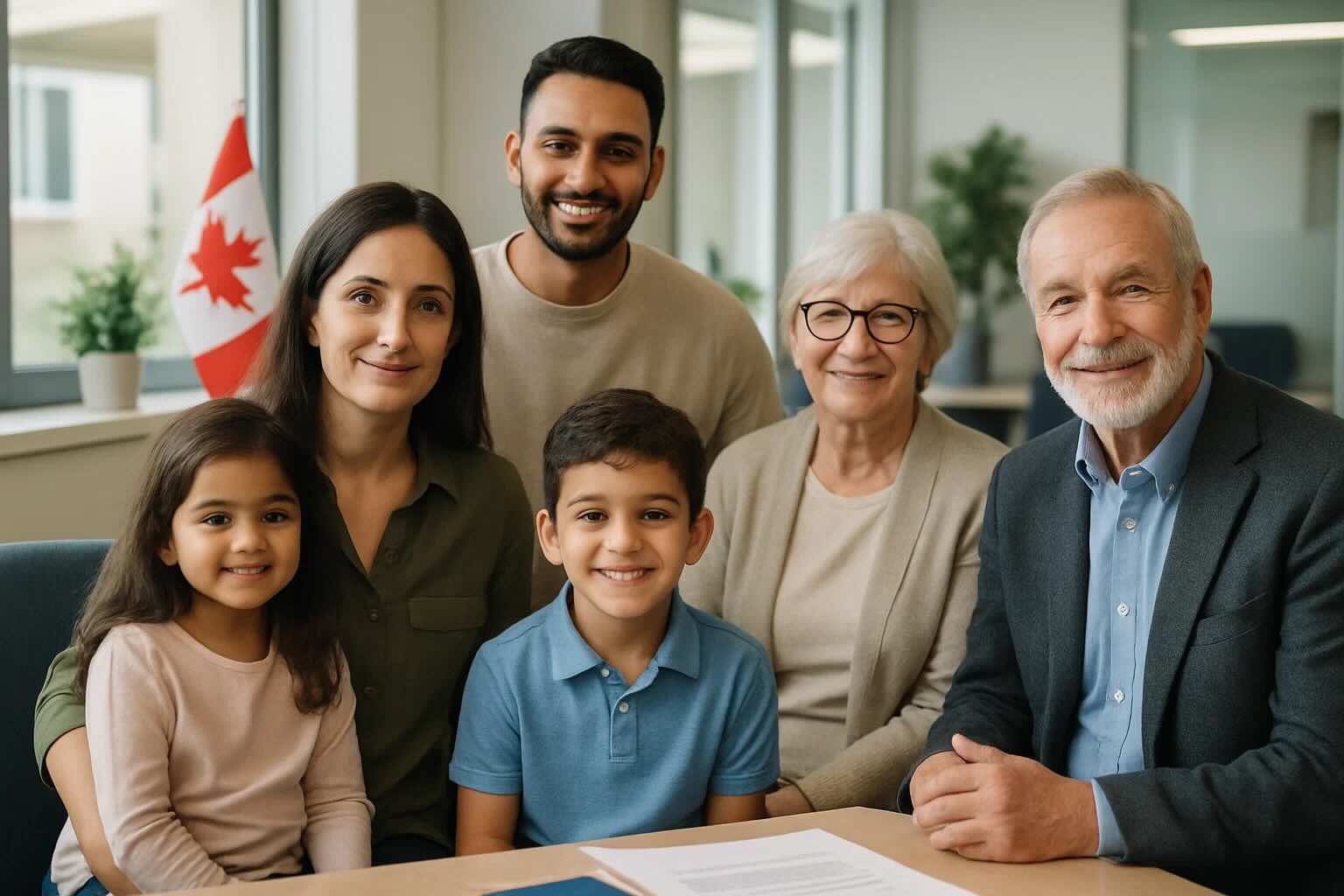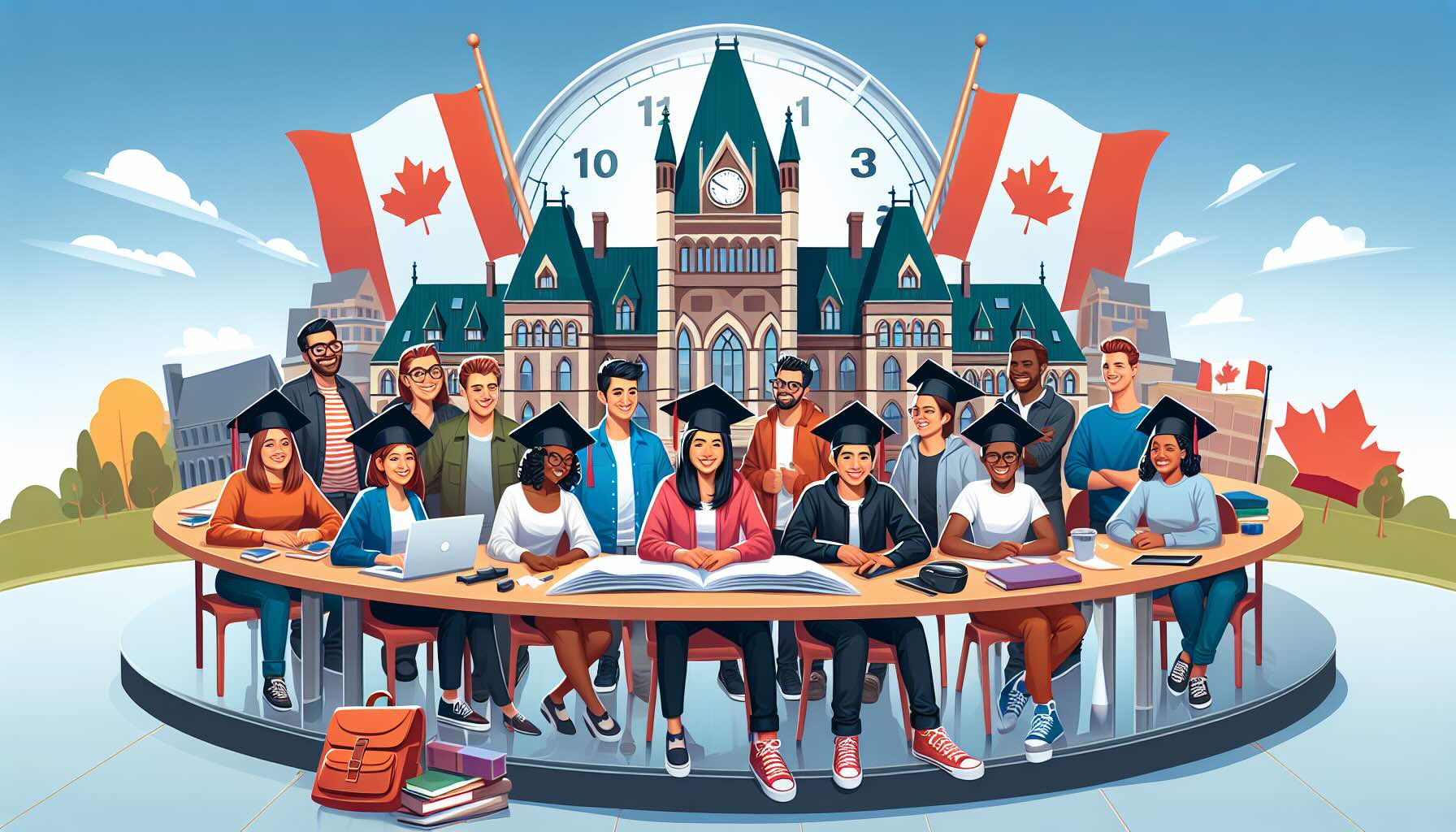
Canada to Simplify Graduate Study Permit Process in 2026, Removing Provincial Attestation Requirement
Immigration, Refugees and Citizenship Canada (IRCC) has announced that, effective January 1, 2026, international master’s and doctoral students will no longer need to provide a Provincial or Territorial Attestation Letter (PAL/TAL) when applying for a study permit. The policy aims to simplify the application process, maintain the two-week fast-track for doctoral students, and remove all limits on the number of eligible applicants. Qualified students may also include their family members in their applications. The change is expected to further strengthen Canada’s position as a global leader in higher education and research.
11/13/2025

Northwest Territories Nominee Program adds a third intake window; eligibility changes in effect through year-end
The Northwest Territories (NWT) has announced a third application intake window for its Nominee Program (NTNP), running from November 10, 2025 at 9:00 a.m. to November 24, 2025. To complete the 2025 target of 300 nominations, the territory plans to process up to 103 additional eligible applications by year-end and has introduced temporary eligibility adjustments: removal of the work-permit expiry-date restriction, reinstatement of certain 2024 work-experience requirements, and elimination of employer submission caps tied to company size. Applications will be prioritized for candidates whose work permits expire within the next three months, followed by filing date order; if processing exceeds capacity or cannot be finalized by December 23, applications will be withdrawn, with the option to reapply in 2026.
11/10/2025

Northwest Territories Restores 2025 Nominee Quota to 2024 Levels, Allowing Up to 300 Nominations
The Government of the Northwest Territories (NWT) has announced that its 2025 Northwest Territories Nominee Program (NTNP) allocation has been restored to 2024 levels following federal approval. The total quota will rise to 300, up significantly from 197 earlier this year. Minister of Education, Culture, and Employment Caitlin Cleveland stated that preparations are underway for the next NTNP intake period, which will open additional pathways for skilled workers to obtain provincial nomination. This adjustment makes the NWT the first jurisdiction in 2025 to regain its pre-reduction quota, marking a key milestone in the territory’s ongoing efforts to address critical labor shortages through immigration.
10/21/2025

Saskatchewan Receives Increased Immigration Allocation, Creating New Opportunities for Priority Sectors
The Canadian province of Saskatchewan has announced that its 2025 Provincial Nominee Program (SINP) has received an additional 1,136 nominations from the federal government, bringing its total annual allocation to 4,761. This adjustment reopens application pathways for several sectors that were previously paused due to reaching their caps. Against a backdrop of diverging immigration allocation trends across Canada, this development in Saskatchewan, along with increases in several other provinces, highlights the complex and evolving landscape of federal and provincial immigration policies.
08/29/2025

Super Visa: Canada's 'Fast Track' Alternative for Parent and Grandparent Reunification
For many families hoping to reunite with parents or grandparents in Canada, the limited lottery for the Parents and Grandparents Program (PGP) presents a significant hurdle. This article provides an in-depth analysis of Canada's Super Visa program, which serves as an attractive alternative by offering a long-term visitor visa with year-round applications. The report details the core differences between the Super Visa and the PGP, outlines eligibility criteria and application procedures, and offers professional strategies to address common reasons for refusal, helping applicants increase their chances of success.
08/17/2025

Success is in the Details: A Guide to Navigating Canada's PGP Application and Avoiding 5 Critical Pitfalls
Canada's Parents and Grandparents Program (PGP) is a vital pathway for many families to reunite. However, after receiving an Invitation to Apply (ITA), common mistakes in the application process can derail an applicant's efforts. This article provides a detailed analysis of the five most common application "pitfalls," including incomplete applications, replying to no-reply emails, inconsistent information, improper form signing, and omitting periods of unemployment. It also offers specific strategies to avoid them, aiming to help applicants increase their chances of success and smoothly complete what may be a once-in-a-lifetime sponsorship opportunity.
07/30/2025

Canada's 2025 Parents and Grandparents Program: Income Requirements Increased, Invitations to Continue from 2020 Pool
The Canadian federal government has recently updated the income requirements for sponsors under the 2025 Parents and Grandparents Program (PGP), introducing a significant increase. For a baseline two-person family, the minimum required income for 2024 has risen to $47,549, an increase of over $3,000 from the previous year. Sponsors must demonstrate that their income has met or exceeded the set levels for the three preceding tax years (2024, 2023, and 2022). Additionally, the government has confirmed that the 2025 invitations will be drawn from the pool of candidates who expressed interest in 2020, with plans to issue approximately 17,860 invitations to receive 10,000 complete applications. For those unable to apply, the Super Visa remains the primary alternative for long-term family reunification.
07/25/2025

QS 2026 Best Student Cities Revealed: Four Canadian Cities in Top 100
Global higher education analyst Quacquarelli Symonds (QS) has recently released its 2026 Best Student Cities ranking. Four Canadian cities—Montreal, Toronto, Vancouver, and Ottawa—have secured spots in the top 100. While these cities are lauded for their excellent student feedback, diversity, and university quality, their overall scores are weighed down by consistently low marks in affordability. Notably, all four cities have seen a significant drop in their rankings compared to the previous year. This trend not only reflects a broader challenge faced by North American cities but also introduces new factors for international students to consider when planning their education in Canada.
07/20/2025

Canada's Parents and Grandparents Program Set to Open for Invitations
Canada's federal government has announced that the highly anticipated Parents and Grandparents Program (PGP) will launch a new round of invitations on July 28, 2025. Over a two-week period, the immigration department will send 17,860 invitations to candidates who submitted an interest to sponsor form in 2020, with the goal of accepting 10,000 complete permanent residence applications. For sponsors who do not receive an invitation this round, or for families who were unable to enter the pool in recent years, the Super Visa remains an important pathway for parents and grandparents to reunite with family in Canada for long-term stays.
07/18/2025

Policy Reversal: Canada Postpones Tightening of PGWP Rules, More International Students to Benefit
In a surprise announcement, Immigration, Refugees and Citizenship Canada (IRCC) has revealed it will postpone the implementation of a highly-watched measure to tighten eligibility for the Post-Graduation Work Permit (PGWP). Certain study programs slated for removal from PGWP eligibility on June 25, 2025, will now remain eligible until early 2026. This adjustment not only safeguards students who applied for study permits during the policy transition period but has also temporarily increased the total number of PGWP-eligible programs, marking a significant boon for students in non-degree college programs, who are the primary group affected.
07/16/2025